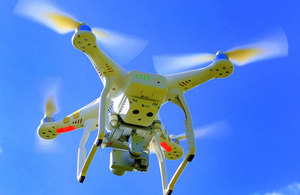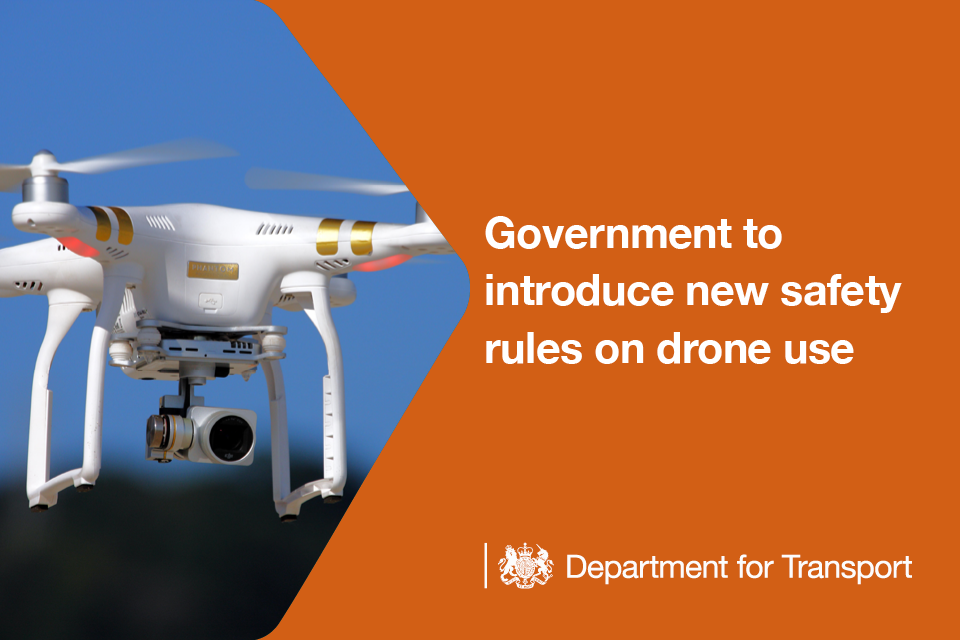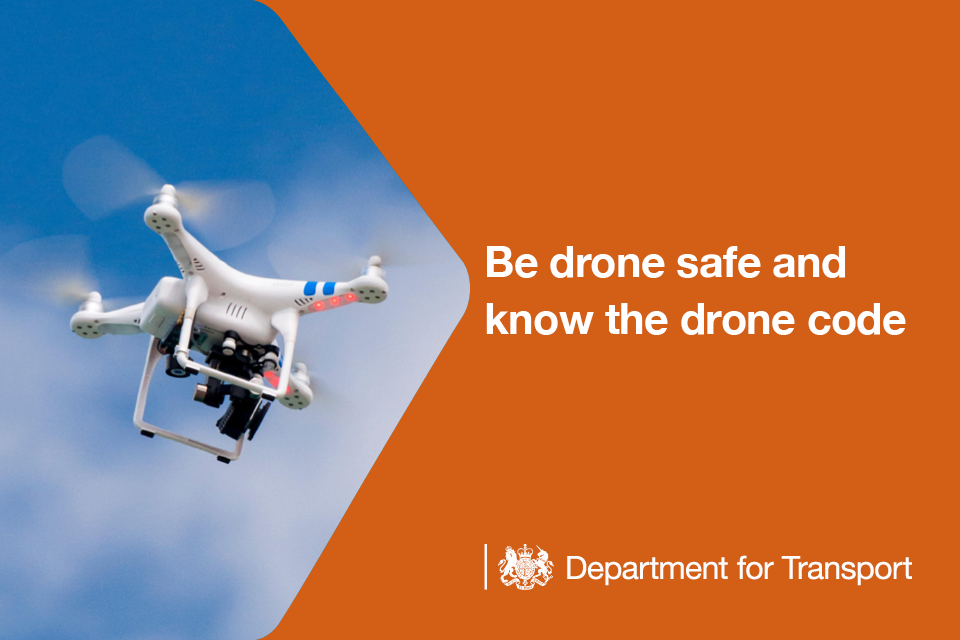Drones to be registered and users to sit safety tests under new government rules
New rules to better regulate drone use.

Drones will have to be registered and users will have to sit safety awareness tests under new rules to better regulate their growing use, the government announced today (22 July 2017).
Owners of drones weighing 250 grams and over will in future have to register details of their drones to improve accountability and encourage owners to act responsibly.
Users may be able to register online or through apps, under plans being explored by the government. The move follows safety research that concluded drones could damage the windscreens of helicopters.
In addition, a new drone safety awareness test means owners will have to prove that they understand UK safety, security and privacy regulations.
Drones represent an exciting opportunity for the UK, are already of substantial benefit to business and the public and are central to the government’s Industrial strategy.
They can help boost productivity and safety, aid the emergency services and bring pleasure to those who use them for fun. We want Britain to be the first choice for businesses, scientists, innovators and investors in technology.
The government also plans to bring forward and expand the use of ‘geo-fencing’ in the UK that acts like an invisible shield around buildings or sensitive areas. The technology, which works on GPS coordinates, is built into the drone and stops it from entering zones such as prison or airport space. [1]

In line with the government’s ‘Industrial strategy’, will continue working with the Civil Aviation Authority (CAA) to help commercial drone users grow their businesses by making sure measures are updated to reflect the needs of the emerging market worth over £102 billion globally.
Aviation Minister Lord Callanan said:
The UK is at the forefront of an exciting and fast growing drones market and it is important we make the most of this emerging global sector.
Our measures prioritise protecting the public while maximising the full potential of drones. Increasingly, drones are proving vital for inspecting transport infrastructure for repair or aiding police and fire services in search and rescue operations, even helping to save lives.
But like all technology, drones too can be misused. By registering drones, introducing safety awareness tests to educate users we can reduce the inadvertent breaching of airspace restrictions to protect the public.
These measures come after a consultation looking at ways to make drone use safer while maximising their potential.
Findings by the Department for Transport (DfT), British Airline Pilots’ Association (BALPA) and the Military Aviation Authority (MAA) published today in a summary report, reveal drones weighing 400 grams could damage the windscreens of helicopters in particular. However, airliner windscreens were found to be much more resistant. It would take a heavier drone of around 2 kilograms to critically damage an airliner windscreen, and only if the airliner is flying at a high speed; not during take-off and landing.
The government is feeding the data into relevant security and safety bodies alongside manufacturers, to ensure they implement improvements to safety.

The government worked with the CAA to develop a new drone code launched last year which has 6 key principles:
- always keep your drone in sight
- stay below 400 feet (120 metres) to comply with the drone code
- every time you fly your drone you must follow the manufacturer’s instructions
- keep the right distance from people and property
- you are responsible for each flight
- stay well away from aircraft, airports and airfields
[1] This technology means that drones can be programmed to hover at the edge of zones unable to progress further or not to take-off within zones. Some manufacturers have already programmed their drones not to fly in sensitive areas but the government would like to reinforce this work.
News desk enquiries
Media enquiries 0300 7777 878
Switchboard 0300 330 3000